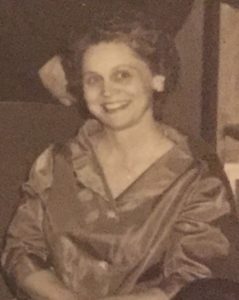The population of Knightdale, a bedroom community near Raleigh, is closing in on 20,000 but when we moved nearby almost 50 years ago it was a little country town, population 815.
Small as it was Knightdale had a doctor, a real country doctor I guess you’d say. He had an office on First Avenue and he saw, and tried to help, whoever showed up — no appointment necessary.
I went to see him twice, once for a cough that just wouldn’t go away and once for a persistent pain in my chest.
I started coughing before Christmas one year and I went to see him in February, March maybe, I don’t remember. What I do remember is that I had been coughing for weeks, months. It finally occurred to me that I might have lung cancer.
The doctor, who was wearing a sports shirt, didn’t take an X-ray, or draw blood, or run any kind of test. He just pressed his stethoscope against my chest, thumped on me a few times, and listened to me breath. Then he sat down at his wooden desk, opened a drawer, took out a syringe, and asked if I were allergic to penicillin.
I said, “No sir.”
He said, “Roll up your sleeve.”
I said, “What’s wrong with me, doc?
He said, “I don’t know, but this will cure it.”
And it did.
The second time I went to see him I thought something might be wrong with my heart – I felt pain every time I took a deep breath.
The doctor asked me if there was a history of heart attacks in my family.
I told him there wasn’t.
He asked if I felt the pain when I climbed stairs, or exerted myself.
I said no.
He just sat there at his desk and thought for a few seconds, didn’t say anything. And then he told me to stand up. He got behind me, put his arms around my chest, squeezed, told me to try to take a deep breath, and asked if it hurt.
I said no.
“I know what’s wrong with you,” he said.
He told me, some word I had never heard and don’t remember.
I asked him to explain.
And he said I had some scar tissue on my lungs, my lungs had shifted around, and the scar tissue was rubbing against my ribs when I took a deep breath. That’s what caused the pain.
“What are we going to do about that,” I asked.
“We’re not going to do anything about it,” he said. “You going to get used to it. In a little while your lungs will shift again and the pain will go away.”
And that’s what happened.
